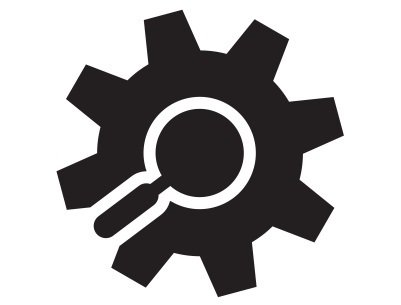We are live!
The Collins Institute's core platform Parrasia.io is now live and free for anyone who wants to use it. We have a team of editors improving the content day and night to get it to a quality where we feel like it can rival existing systems.
Rethinking Education
The Collins Institute for the Gifted is a new model of at-home education optimized for self-motivated young scholars who thrive when given freedom.
The Institute applies a PhD-level attitude toward knowledge acquisition to middle school and high school education through a first-principles approach.

Important Notification: Product & Website Overhaul Underway
The Institute is only months away from launch. Over the course of its development, we made some fairly large changes to the vision for the final product. These changes will be reflected on the website over the coming month. Any contradictions or spelling/grammar errors are a result of the overhaul.
- The Institute will be free. We worked hard to ensure that the vanilla version of this product could be as widely accessible as possible. As a result, we have scrapped plans to build an in-person school (as obviously that cannot be free). However, the Institute platform works in a way where it can be used independently by a student, by a parent to help with home education, or with a local tutor.
- At first, our design philosophy was built around trying to make the product's output as close to the existing educational paradigm as possible. A big part of this was a feature designed to prevent students from falling behind in specific subjects to ensure a well-rounded education. While we will eventually build out this feature as an option, it is no longer included in the vanilla Institute platform. We made this change for two reasons: first, the type of parents who would use a product like this hated the restrictions on what a student could choose to learn in early user testing. Second, we believe that in a world of hyper-advanced AI, specialized skill sets will be much more important to employability than well-rounded ones. A system that actively discouraged students from pursuing specialized educational outcomes was counterproductive.
- Another large design philosophy change was that originally we wanted the Institute to accurately measure a student's ability in various subjects, which meant putting systems in place to make cheating difficult. We came to realize that in an age of AI, preventing cheating was functionally impossible, and the systems we put in place to ensure we were accurately measuring students' competence were making the experience of learning less fun. To remedy this, we moved to a design philosophy centered around keeping students honest with themselves through short tests about what they do and do not know, while removing as much of the "educational" experience that gets in the way of the joy of learning and satisfaction from self-improvement as possible. Testing is the least fun part of the gameplay loop that is education so we cut down the length of the tests dramatically.
How The Collins Institute Works
We do not educate; we facilitate education.
While not for all students, we serve as a tool that helps self-motivated learners reach new heights.
Self-Directed Learning
We divided all human knowledge into a skill tree / tech tree, with each node in the tree representing a mastery level. As students complete individual nodes, more advanced nodes unlock, increasing the options they have about what to study. The system uses the opportunity to learn more as a reward for learning.
Focus on Real World Skills
While we offer traditional domains of study like math and history, we don't privilege them over subjects with practical application. These include skills such as sales, coding, hanging drywall, engineering, social dynamics, emotional mastery, self-discovery of purpose, and the development of an intentional, unique identity.
Student Built Platform
As students complete nodes, they get the opportunity to both add new locations where the material covered in the node can be studied and vote on existing sources. This ensures each node is not a self-contained lesson but rather a map of the best sources ever created for every individual skill.
How we define gifted & success
We are focused on "I Will" not IQ. At the Institute, "gifted" does not refer to individuals who test well. Instead, we look for students with fire in their hearts and a desire to live life on the world stage: A combination of self-sufficiency, initiative, ambition, and a lack of contentment with the status quo.
The Institute is designed to consistently produce the next generation of world leaders—not just send our students to top colleges. Our students are empowered to become elite movers and shakers in the domains they are most passionate about—ranging from mycology to Brazilian politics. Our goal is to have every student graduate as a “rising leader to watch.”
Expert Interaction
A cornerstone of the Institute's education philosophy is that the smartest, most ambitious kids are peers among best-in-class adult leaders.
- 1We maintain a network of leaders in various domains who are eager to collaborate with our students on projects, ranging from peer-reviewed research to the launch of new nonprofits.
- 2When a student's interests do not overlap with one of our community's existing experts, we work with the student to learn how to identify and contact world-class experts.
- 3As students become experts themselves, they will undertake greater responsibilities, becoming our peers in the educational process by tutoring others and building new courses.
About our founding team
Simone and Malcolm Collins have operated companies on five continents that collectively pulled in seventy million dollars annually, raised a PE fund, directed strategy at top, early-stage VC firms, written three bestselling books, and earned degrees in neuroscience, business, and technology policy from St. Andrews, Stanford, and Cambridge.
Are you INTERESTED in the institute's Mission but neither a student nor a parent?
